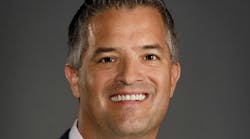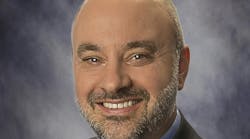Topping off a two-day meeting that offered distributors new sales, marketing and management ideas, the National Association of Wholesaler-Distributors (NAW) treated its members to a special briefing with President George W. Bush.
The briefing followed NAW's 2003 Executive Summit, held Jan. 27-29, in Washington D.C., and is the second time in three years that NAW members met with the president. Saying his ability to “get things done” in Washington was dependent in part on “friends like NAW,” President Bush thanked NAW for its endorsement of his economic stimulus program. He called tax relief a crucially important component of that stimulus and said, “The reduction of all income tax rates is ultimately fair.”
The president also said lowering taxes for small wholesale-distribution firms and other companies would aid business, consumers and the entire economy. He said the economic stimulus package included a new provision that would allow small firms to write off as expenses up to $75,000 a year instead of the current annual limit of $25,000, and that this would encourage those firms to increase spending on goods, services and additional human resources.
Stephen Friedman, assistant to the president for economic policy and director of the National Economic Council, led the NAW members through the president's stimulus plan. NAW has supported the plan through the Tax Relief Coalition (TRC). TRC was co-founded by NAW to support passage of the president's tax relief package in 2001. More than 1,000 organizations representing 1.8 million businesses are TRC members.
Following the White House meeting, Dirk Van Dongen, NAW's president said, “Our members have been very energetic supporters of the president. We continue to back his economic agenda wholeheartedly. It was a privilege to have this opportunity to express our enthusiasm.”
Immediately prior to the briefing, Bush visited privately with NAW Chairman W. Grady Rosier, Chairman-Elect André B. Lacy and Van Dongen.
During the 2003 Executive Summit, NAW members also had the opportunity to hear from the U.S. Secretary of Labor Elaine Chao. She voiced the Bush Administration's support for an overhaul of the current overtime regulations and personal reemployment accounts that would offer $3,000 for training, education or relocations expenses to unemployed workers.
Chao said the Bush Administration would push hard for the passage of the Sales Incentive Compensation Act (H.R. 2070), which would exempt inside sales personnel from overtime.
“We want to make this law more applicable to the 21st century workplace,” she said.
NAW is also an active lobbyist for health-care reform, and earlier this month it participated in a hearing the Senate Committee on Small Business held on the crisis in health care facing America's small employers.
The hearing, led by the committee's chair, Senator Olympia Snowe (R-ME), also explored approaches to confront the crisis. Citing the results of a health insurance benefits survey conducted by NAW in spring 2002, Jim Anderson, NAW's vice president of government relations, said the biggest problem confronting employers is cost. He said premium increases in 2002 over the preceding year averaged 19 percent in the wholesale distribution industry, well above national averages revealed in other studies. The average increase for wholesaler-distributors with more than 500 employees was 16 percent, while the average increase for smaller industry employers reached 20 percent.
Anderson said as employees are required to pay more for less coverage, more young and healthy and lower income workers may elect to drop out of their employer's plan and go without coverage. With more than 41 million Americans already without health insurance, he said the growing lack of access to medical care has public health and economic consequences.
NAW sees two solutions to address this mounting problem. It wants an end to government-imposed mandates on health-insurance plans, which add about 15 percent to the overall increase in health premiums. The association is also lobbying for the enactment of Association Health Plan (AHP) legislation to enable employers and their workers to benefit from greater competition and choice in the marketplace.
AHP legislation is expected to be introduced by Senators Snowe, Kit Bond (R-MO) and Jim Talent (R-MO), and Representatives Ernie Fletcher (R-KY), Cal Dooley (D-CA), Sam Johnson (R-TX), Nydia Velasquez (D-NY), and John Boehner (R-OH). This legislation will authorize the formation and multi-state operation of both self-insured and fully-insured health plans sponsored by certain trade associations, bringing to smaller employers regulatory advantages, bargaining power and economies of scale now available only to large corporate and union plans.







